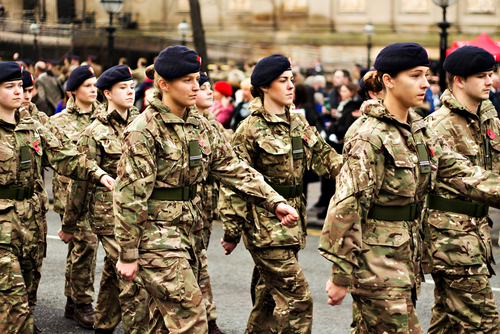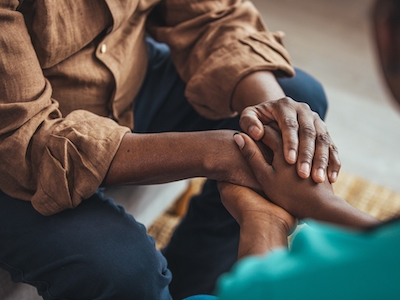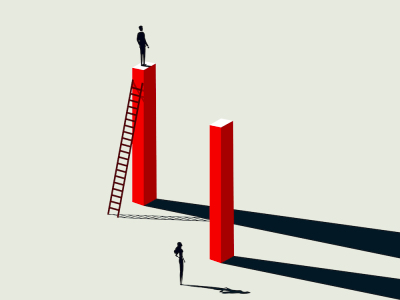While serving in the military is seen by many to be a noble pursuit, there is a negative aspect to it – and it affects servicewomen far more than servicemen.
Servicewomen aged 20-44 are the most likely to have a mental health diagnosis, making it all the more important that there are support systems in place to help.
A recent study into the military charity sector has shined a light on the strength of support available to military personnel. Specialist lawyers Bolt Burdon Kemp, alongside military charity Veteran’s Lifeline carried out an open survey directed at military charities, titled the Military Charity Barometer.
The government isn’t doing enough for veterans’ mental health
Unfortunately, the consensus among military charities is that more needs to be done to provide adequate levels of support. Over two thirds of military charities think neither the government nor the Armed Forces are doing enough to support veterans’ mental health. To make matters worse, ten per cent and five per cent of charities respectively say the Armed Forces and the government aren’t doing anything to help veterans when it comes to their mental wellbeing.
This is particularly concerning for servicewomen as they are more likely than servicemen to experience behaviours from their peers that may be distressing to them. What’s more, despite only making up ten per cent of the overall personnel, they are forced to make 20 per cent of complaints to the military complaints system. In 2017, out of 126 victims of sexual harassment in the military, a staggering 100 were women.
Military charities aren’t equipped to deal with mental health trauma
Facing harassment and discrimination takes a significant toll on your mental health. Military charities serve as a source of support for veterans and service personnel for any issues they might be facing.
Unfortunately, many military charities noted that they don’t believe their sector is adequately equipped to deal with veteran mental health issues. The survey found that two in five employees at military charities receive no formal training in how to spot or treat mental disorders. Only three in five military charities reported being able to provide formal mental health support or training to staff that deal with traumatic cases.
Veterans during COVID-19
Add to all this, the impact that the pandemic is having on military veterans. While service personnel have been actively involved in providing coronavirus-related aid, new studies are revealing that veterans aren’t being properly supported. One study found a 50 per centt increase in veterans saying they’re struggling with mental health issues during the pandemic, while another has been launched to explore the wider impact of COVID-19 on the Armed Forces.
What to do if someone you know is struggling
Whether they’re an army veteran or a civilian, it’s more than likely you know someone who’s struggling in the aftermath of lockdown and on-going stress of COVID. While you can’t take full responsibility for someone else’s health, here are some quick suggestions for things you can do which might help them bolster their mental resilience:
- Check in with them and let them know you’re always there to talk. While you can’t force someone to confide in you, ensuring your friend or family member knows you’re a safe space can help them relax and feel less isolated. If they do open up to you, ask open questions to get a better idea of how they’re feeling, and never use judgemental language.
- Plan active get-togethers if you’re able to meet up. Physical activity is not only fantastic for relieving stress and improving quality of sleep, but research shows that just 30 minutes of movement can reduce symptoms of depression by up to 5%. Celebrity fitness expert James Stirling suggests that walking while you talk is a great way to give both your physical well-being and social life a shot in the arm, or you could suggest heading to a socially distanced boot camp or yoga class.
- Encourage healthy eating habits. If you’re dealing with a family member, then switching to a Mediterranean diet has been proven to make the brain stronger, and just making a few small changes to your evening meal (such as more oily fish or vegetables) could have huge benefits for everyone involved.
- If you do have any real worries about whether your friend or family member is at risk, always get in touch with a professional. A list of useful contacts can be found here.
About the author
Hannah Waters is a freelance writer from London, who specialises in covering social justice and mental health. Her work has appeared extensively throughout news and business publications.
WeAreTheCity covers the latest female centric news stories from around the world, focusing on women in business, careers and current affairs. You can find all the latest gender news here.
Don’t forget, you can also follow us via our social media channels for the latest up-to-date gender news. Click to follow us on Twitter, Facebook, Instagram, and YouTube.









